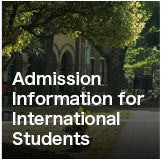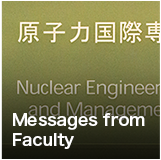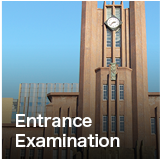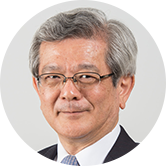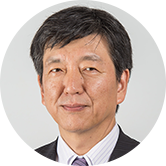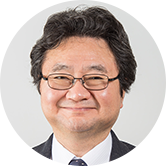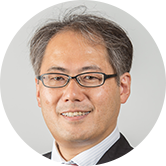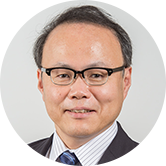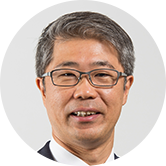- HOME
- For Prospective Students
- Study at the Department of Nuclear Engineering and Management
- Professor Mitsuru UESAKA
Mitsuru UESAKA Professor
Study03
The social industrial infrastructure diagnosis using an accelerator is a new field in nuclear power that will lead to contributions to society.
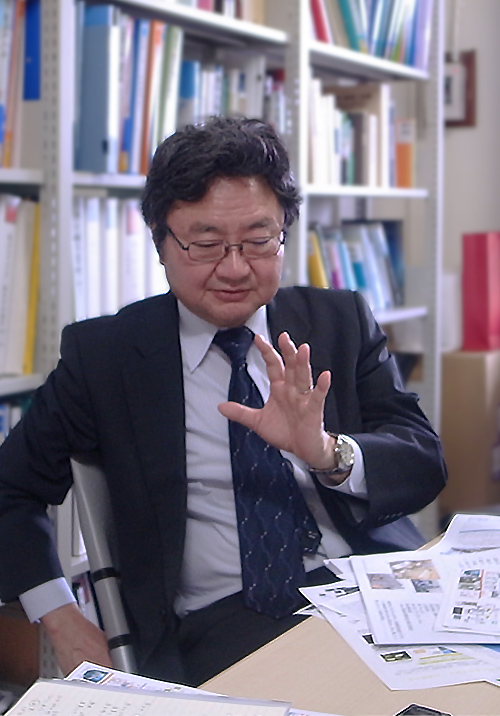
Which areas of nuclear power can students learn in your laboratory?
We conducted research on radiation applications in nuclear power. Within that field, we study the production of accelerators that produce electron beams, ion beams, X-rays, neutrons, or lasers using radiation. One of the applications of an accelerator is medicine. About half of the students in my laboratory study subjects such as why an organism develops cancer when exposed to radiation, why low-dose exposure should be the cause of concern, and how DNA repairs the damage inflicted by radiation in addition to using it for cancer diagnosis. Meanwhile, the application of radiation to bridge inspection has been attracting a significant amount of attention in recent years. It has been more than 40 years since the construction of around 700,000 bridges in Japan, and the particularly old bridges often fall during large-scale earthquakes. By taking an X-ray of a bridge, one can see the extent of degradation inside the bridge, which is helpful for repairing the bridge. Till now, bridges were repaired without inspecting their inner structure. But with X-ray, it became possible to check which parts are broken and need to be repaired and conduct structural analysis first. Moreover, since it is not possible to examine a bridge into the laboratory, we are also working on the research and development of miniaturized accelerators to make them portable. Research on accelerators results in a wide variety of medical applications and social/industrial infrastructure diagnosis techniques. There are many aspects to the development of better accelerators that cannot be understood unless one comprehends their real-world purposes and thinks from the position of the user. Therefore, we use our accelerators as we manufacture them and integrate that experience into our research. Social/industrial infrastructure diagnosis is a new field in nuclear power that will lead to contributions to society.
What types of future paths (careers) are there for your students after their study?
Graduates with a doctorate can choose many career paths, including manufacturing and medical institutions in addition to research institutions. For example, our former students are currently working at Hitachi Central Research Laboratory, Toshiba Corporate Manufacturing Engineering Center, the Japan Atomic Energy Agency and Hitachi, as well as teaching at universities. Many graduates with master’s degrees work in manufacturing, and in recent years, the number of graduates going into consulting is increasing. They work with truly diverse employers, including GE Medical, Sumitomo Heavy Industries, Mitsubishi Heavy Industries, Nomura Securities, and Mitsubishi Research Institute and Recruit. One can work in any field by applying what one has learned here.
Could you tell us what you think are the attractive aspects of the Department of Nuclear Engineering and Management?
At my laboratory, I encourage my students to gain experience by studying abroad. Starting with the United States, we offer an environment for each student to plan their own studies abroad using the strong connections we have developed with the other institutions. I would like them to choose the duration of stay that suits them, including short-, medium-, and long-term stays, and be exposed to many new ways of thinking. I believe that the movement of manufacturing centers to Asian and African countries will further accelerate, and Japanese people are moving from manufacturing to management. Thus, experience abroad will undoubtedly be useful for building the future of Japan. Moreover, the laboratory is highly diverse, with foreign students from the U.S., France, Germany, and Asian countries, such as Indonesia, South Korea, and China. In recent years, most of these foreign students have found employment in Japan after graduation. We are in an era where one is expected to accept people from many countries even if one is working in Japan. The Department of Nuclear Engineering and Management offers an environment where one can develop management skills with a global perspective. We also focus on the education of operators and managers of nuclear power stations. We offer an environment where one can learn in various stages of one’s career, and we engage in training nuclear power managers by gathering talents from around the world in collaboration with IAEA.
Could you give us a message for prospective students?
Japan is in an era of globalization and many foreigners are working in Japan. Technology is also being internationalized, and today it is common to work with foreigners. Thus, we are in an era where some companies adopt English as their official language. I believe that students should spend time abroad while they are still young to work in an English-speaking environment. As American English, British English and African/Asian English have significantly different accents, I would like the students to spend time in different parts of the world and improve their language skills. Moreover, I believe a true cosmopolitan Japanese person must have a strong national identity, which allows them to be equal when working with foreigners. I would like my students to be the kind of people that respect other people’s culture while cherishing their own Japanese identity and combine each other’s strengths to become innovative.



